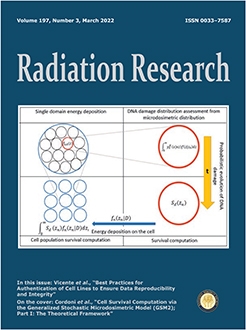This study has established the impact that space radiation exposure has on the capability of rats to successfully negotiate behavioral tasks of increasing complexity. Rats previously exposed to a low dose (10 cGy) of either 4He ions or a cocktail of 6 ions that simulates the galactic cosmic ray spectrum (GCRSim) were screened initially on an attentional set shifting (ATSET) task that provides a measure of executive function. Rats that exhibited superior ATSET performance were then selected for follow up behavioral assessments designed to evaluate how the cohort of “good performers” would fare when presented with a novel behavioral paradigm termed the Associative Recognition Memory and Interference Touchscreen (ARMIT) task. Central to this approach was to discriminate if/how adaptive problem solving would be impacted by changing the options of associative cues presented over several learning sessions to obtain a reward under time constraints using this newly designed touch screen-based task. Data from these studies indicated that when faced with an increased cognitive load, possibly due to interference from prior associative recognition memories, rats exhibited impairments in their capability to negotiate task dynamics and efficiently engage abstract reasoning. Interestingly, while exposure to the GCRSim adversely impacted problem-solving capabilities, single ion exposure did not, pointing to the nuances of space radiation exposure on CNS functionality. Since the selected behavioral paradigms exhibit strong cross-species correlates, data suggest that rodents succumb to increased task rigor as observed in humans, and make similar mistakes when challenged with the interference of overlapping associative memories. Furthermore, data clearly points to the limitations of over-reliance on a single cognitive endpoint that may underestimate global neurocognitive risk due to space radiation exposure.
How to translate text using browser tools
17 December 2021
Dissecting Differential Complex Behavioral Responses to Simulated Space Radiation Exposures
Richard A. Britten,
Arriyam Fesshaye,
Peter Ihle,
Andrew Wheeler,
Janet E. Baulch,
Charles L. Limoli,
Craig E. Stark
ACCESS THE FULL ARTICLE

Radiation Research
Vol. 197 • No. 3
March 2022
Vol. 197 • No. 3
March 2022




